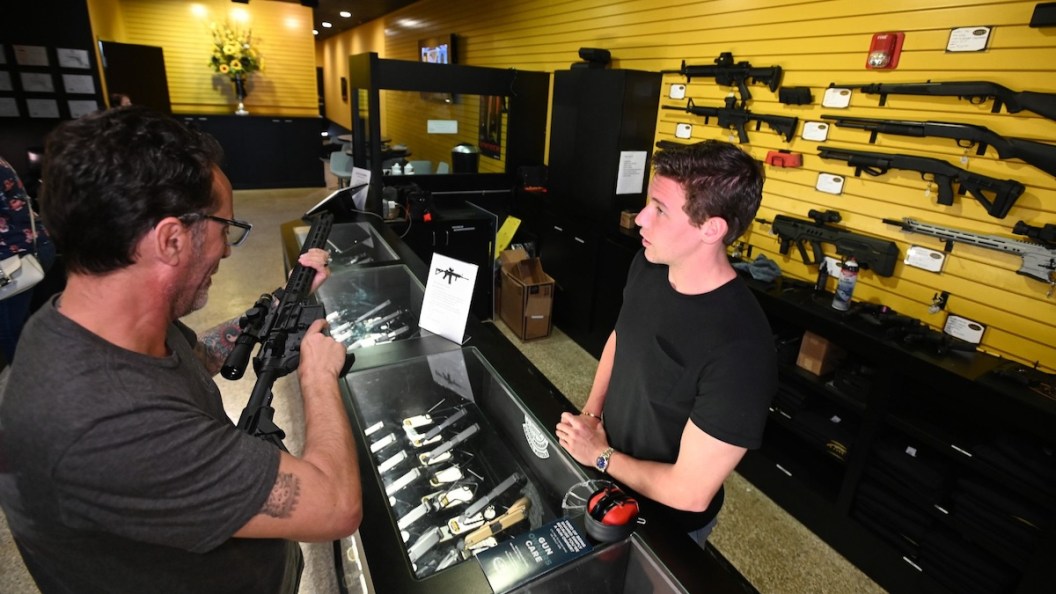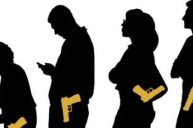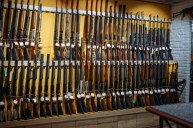The Justice Department updated the definition of what it means to be "engaged in the business" of selling firearms, extending it to apply to anyone who sells guns as a way to turn a profit. Supporters say the new rule closes the infamous "gun show loophole" while critics say it creates a universal background check system without Congressional approval.
During a teleconference with reporters, Vice President Kamala Harris, who was tasked to lead a gun violence prevention project by the Biden administration, described the update as closing "one of the biggest gaps in the federal background check system: the so-called 'gun show loophole.'"
While the term "gun show loophole" initially meant sales at gun shows, where a private seller could transfer a firearm to a private buyer without a background check, it's come to mean most or all private gun sales.
"This single gap in our federal background check system has caused unimaginable pain and suffering," Harris said, adding that gun violence has become the leading cause of death for children as incidents have surpassed both car accidents and some cancers.
In a statement, U.S. Attorney General Merrick Garland explained that "Under this regulation, it will not matter if guns are sold on the internet, at a gun show, or at a brick-and-mortar store: if you sell guns predominantly to earn a profit, you must be licensed, and you must conduct background checks."
Federal law enforcement agencies like the ATF said they needed greater clarity for defining a person engaged in the business of dealing firearms.
Steven Dettelbach, ATF director, explained that under the old rule, a "large and growing black market of guns" had developed with individuals selling guns privately. He said people had been "openly flouting" the law, which he called "unfair" and "dangerous" to licensed dealers.
The rule was proposed after the Bipartisan Safer Communities Act, which Congress passed in 2022 in response to mass shootings in Buffalo, New York, and Uvalde, Texas.
Initially, gun rights groups like the National Shooting Sports Foundation, an industry trade group, supported re-defining the meaning of "engaging in the business" of selling firearms to close loopholes, but later, criticized the proposal, saying the ATF did not have the authority to create the rule and that such a measure would move the U.S. toward universal background checks, which Congress rejected.
The rule was proposed last year and as part of the administrative process, it was subjected to a public commenting period. During the 90-commenting period, it received more than 388,000 comments, but it's unclear how many expressed support or criticism for the measure (1,126 included the words "shall not be infringed").
Alan Gottlieb, the founder and executive vice president of the Second Amendment Foundation, a Washington-based gun rights group, called the final rule "another attempt to get around Congress to make new laws without congressional approval." His organization, which often takes legal action against gun control policies, said the rule will "almost certain to be challenged in federal court."
When the rule goes into effect in 30 days, those wanting to sell guns for a living must first obtain a federal firearms license, which requires holders to conduct a background check before completing a sale.




